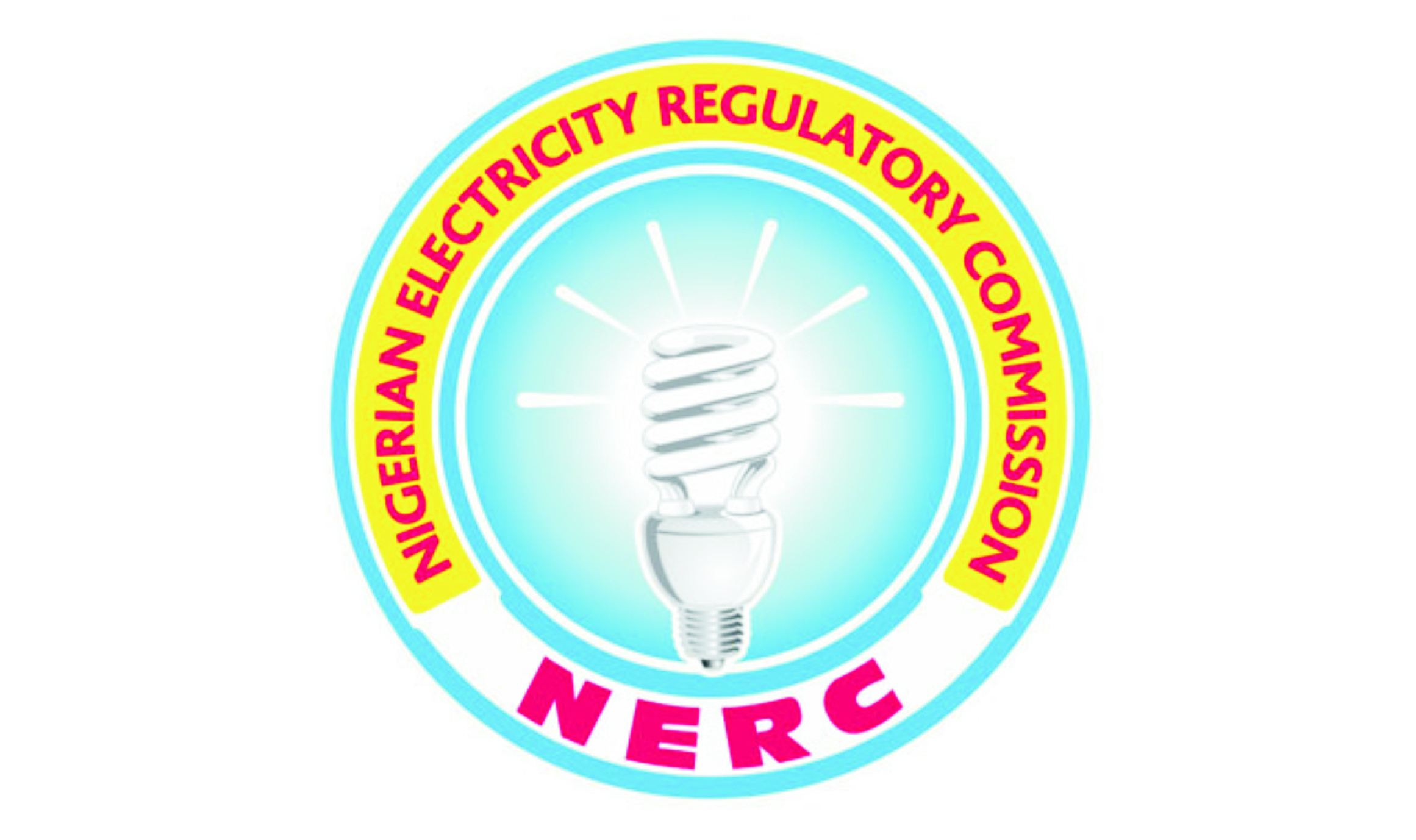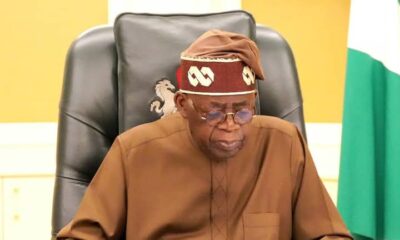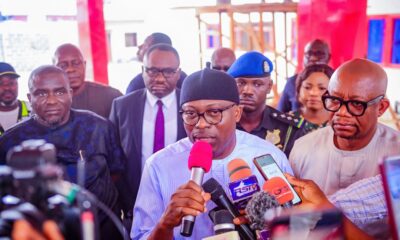Business
Niger Owes Nigeria N4bn For Power Supply – NERC

Niger currently owes Nigeria N4.22bn ($5.48m: $/N769.27 exchange rate) for power supply.
This is according to the just released first quarter report of the Nigerian Electricity Regulatory Commission.
Niger power firm, Nigerien Electricity Society, the report stated, was yet to remit the $5.48m invoice issued for power supply by the Nigerian market operator.
“None of the underlisted international customers made any payment against the cumulative $16.11m invoice issued to them in 2023/Q1; Paras-SBEE ($3.46m), Transcorp-SBEE ($3.85 million), Mainstream-NIGELEC ($5.48m) and Odukpani-CEET ($3.32 million).
“Out of N842.38m invoice issued by MO to all the eight (8) bilateral customers in the NESI, only North-South/Star Pipe made a remittance of N15.38m against its invoice of N24.69m”, it stated.
The NERC mandated the Market Operator to invoke the provision of the market rules to curtail the payment indiscipline being exhibited by the various market participants.
The Tide’s source had last week, reported that the power supply from Nigeria to the Republic of Niger was stopped on August 2.
Last week, ECOWAS, led by President Bola Tinubu, decided on sanctions against the military personnel in Niger, who toppled President-elect Mohamed Bazoum in a coup d’état.
NIGELEC is under contract with a power firm in Nigeria, Mainstream Energy, for the supply of electricity.
Nigeria also exports electricity to the Republics of Benin and Niger based on various Transaction Service Agreements.
In July, the source exclusively reported that Nigeria exported about N23.13bn worth of electricity to some neighbouring countries in 2022.
“Nigeria disconnected since Tuesday (last week) the high voltage line that carries electricity to Niger,” a report by AFP said, quoting industry sources through local production.
According to a report by NIGELEC, Niger’s sole electricity supplier, in 2022, 70 per cent of Niger’s share of electricity came from purchases from the Nigerian company – Mainstream.
Electricity supplied to Niger is produced in Kainji Dam located in Niger State.
However, to free itself from its energy dependence on Nigeria, Niger is working to complete its first dam by 2025.
Located about 180km upstream from Niamey, the Kandadji Dam is projected to generate 629 gigawatt-hours of electricity annually.
A separate report by the BBC also said major cities in Niger are facing rolling blackouts following last week’s coup.
Residents of Niamey, Maradi and Zinder had power for about an hour at a time before it was switched off for up to five hours. Power cuts like these are unusual in Niger, which normally has regular and reliable supplies.
The President of Nigeria Consumer Protection Network and Coordinator, of Power Sector Perspectives, Kunle Olubiyo, confirmed that ECOWAS would isolate Niger Republic from the electricity supply.
“About 60 per cent of power supply to Niger comes from Nigeria. Just like organised labour usually shuts down the national power grid as part of negotiations when all appeals might have failed to achieve results, Mr President (Tinubu) is the leader of ECOWAS at the moment.
“Disconnection of power supply is seen as a low-hanging fruit,” he stated.
Continue Reading
Business
Tinubu’s RHI Doles Out N50m To 1,000 Kwara Petty Traders

The First Lady, Senator Oluremi Tinubu, Monday, presented N50 million cash grant to 1,000 women petty traders in Kwara State.
Senator Tinubu announced the cash grant in Ilorin, the Kwara State capital, during the inauguration of the National Information Technology Development Agency (NITDA) community ICT centre.
The centre was established in collaboration with the First Lady’s pet project, the Renewed Hope Initiative (RHI), under its Social Investment Programme (SIP).
Mrs. Tinubu said: “In the spirit of today’s event, the Renewed Hope Initiative, under the RHI Economic Empowerment scope, will be presenting a grant of N50 million to the First Lady of the state and RHI State Coordinator to support another set of 1,000 women petty traders with the sum of N50,000 each to recapitalize their existing businesses.
“We had earlier empowered 1,000 women petty traders on August 22, 2024.
“Under the RHI Social Investment programme, 250 elderly citizens were given a grant of N200,000 each on December 17, 2024 to celebrate the Yuletide season.
“In addition, the RHI, under its Education Programme, is collaborating with the Universal Basic Education Commission (UBEC) to build an Alternative High School for Girls in Kwara State.
“This is to provide another opportunity to access education for girls and women who dropped out of school due to early pregnancies, child marriages and other socio-economic reasons.
“Also, Kwara State has been nominated to benefit from the construction of a model Early Childhood Care Development Education (ECCDE) centre, which will be built in Ilorin.
“As part of the fruit of our collaboration with the Tertiary Education Trust Fund (TETFund), the Kwara State University is to benefit from the establishment of an ICT Experience Centre.
“Also, under our RHI Agriculture Programme, women and young farmers will benefit from the N68.9 million Federal Ministry of Agriculture and Food Security Support grant.
“This grant has been made available to Kwara State through the First Lady and RHI State Coordinator, who will be responsible for the implementation of the Women Agricultural Support Programme (WASP), Youth Agricultural Support Programme, Every Home A Garden and Young Farmers’ Club of the Renewed Hope Initiative”.
She continued that “So far, NITDA has constructed four community ICT centres. This centre we are inaugurating today is the second, while Benue and Oyo centres are ready to be inaugurated soon.
“Other digital economy centres have also been fully equipped with computers and other ICT materials in five states, namely: Jigawa, Ebonyi, Cross River, Oyo, Niger, and the Federal Capital Territory (FCT).
“Ten additional digital economy centres in Abia, Edo, Delta, Ondo, Kano, Katsina, Lagos, Nasarawa, Yobe, and Zamfara are also being fully equipped with ICT materials and will be ready for inauguration soon.
“By equipping themselves with ICT skills, women and girls can enhance their educational prospects, be self-reliant, participate in the global economy, and support their families.
“Therefore, today’s inauguration presents us with another opportunity under the mandate of the Ministry of Communication, Innovation, and Digital Economy to further expand digital access to our citizens by providing communities with the resources they require to develop ICT skills.
“This is in line with the priority area of the Renewed Hope Agenda of His Excellency, President Bola Ahmed Tinubu, to accelerate economic diversification through industrialisation and digitalisation”.
Governor AbdulRahman AbdulRazaq’s wife, Lady Olufolake AbdulRazaq, noted that the inauguration “speaks to the many engagements and partnerships of Senator Tinubu towards ensuring that Nigerians are adequately supported in the pursuit of their goals and improving livelihoods of the most indigent to complement the efforts of Mr. President Tinubu and the Federal Government in this regard”.
Business
UBA To Educate SMEs, Business Owners On Withholding Tax

Africa’s Global Bank, United Bank for Africa (UBA) Plc, is billed to host a Knowledge Series webinar to educate small and medium business owners on the 2024 withholding tax regulations that went into force this year.
According to a statement from the bank on Monday, the webinar, themed “2024 Withholding Tax Regulations, Specific Emphasis on How They Affect SMEs”, is scheduled to be held today.
The Knowledge Series is a regular seminar/workshop organised by the bank as part of its capacity-building initiatives, where leading business leaders and professionals share well-researched insights on relevant topics and best practices for running successful businesses.
Expected at the webinar are UBA’s Head of SME Banking, Babatunde Ajayi; Financial Analysts with Anderson Consulting, Adeyemi Adediran and Vincent Okoukoni.
UBA’s Group Head, Retail and Digital Banking, Shamsideen Fashola, who spoke ahead of the webinar, emphasised the importance of this edition, noting that it will provide a platform for businesses, especially SMEs, to learn more about the new tax regime, implications for their business, and attendant benefits for them and the economy at large.
He said, “Getting first-hand knowledge from experts on this important subject, as put together by UBA, will be invaluable for any business owner looking to build a lasting enterprise”.
Also speaking on the upcoming workshop, UBA’s Group Head, Marketing & Corporate Communications, Alero Ladipo, said, “At UBA, we remain resolute in our commitment to empowering businesses of all sizes, and that is why we have decided that we will help guide our customers towards making better business decisions and embracing more opportunities in 2025.
“We have assembled an esteemed panel of speakers who will do justice to this topic by sharing their vast wealth of experience and insights on how best to navigate the new tax regime. This is a must-attend event for anyone serious about the long-term success of their enterprise”.
UBA is one of the largest employers in the financial sector on the African continent, with 25,000 employees across groups and serving over 45 million customers globally.
Business
Nigeria Losing $40b Annually From Maritime Sector – NIMENA
Nigeria is said to be losing over $40 billion annually from the maritime sector due to poor regulatory standards and the lack of enforcement mechanisms.
The newly elected Chairman of the Nigerian Institution of Marine Engineers and Naval Architects (NIMENA), Eferebo Sylvanus, disclosed this in a statement, lamenting the significant revenue losses plaguing the sector.
He attributed the challenges to weak enforcement frameworks and substandard regulatory practices.
To reverse this trend, he, among other stakeholders, are canvassing for proper regulation and prioritisation of research and development, which they argued, could unlock the full potential of the sector thereby contributing to the country’s economic growth.
Sylvanus said, “Nigeria has the potential to generate over $40 billion annually from the maritime sector. However, we are losing out on this because of a lack of proper regulatory standards and enforcement mechanisms.
“It is crucial that we focus on strengthening these areas and investing in research and development to solve the sector’s challenges”.
Sylvanus was elected at an extraordinary general meeting held in Port Harcourt, which witnessed the emergence of other members of NIMENA’s Executive Committee.
The Chairman, who described his election as a call to service, emphasised his readiness to reposition NIMENA as a leading institution for maritime research and development, contributing to Nigeria’s and Africa’s economic growth.
Outlining his vision, he said, “My priority is to lead NIMENA to attain international recognition. We will set up a journal house to publish research and development activities that will tackle Nigeria’s and sub-regional maritime challenges. Our collaboration with regulatory agencies, policymakers, and stakeholders will play a critical role in achieving this goal”.
As part of his plans, the new Chairman announced a membership drive aimed at engaging undergraduate marine engineers, young practitioners, and others outside the institution.
“We have set up a membership committee to address the challenges faced by prospective and existing member, while enhancing their benefits”, he added.
On his part, the immediate past chairman of NIMENA, Daniel Tamunodukobipi, commended the transparent election process and urged the new leadership to sustain existing initiatives to enhance safety in Nigeria’s waterways.
“It is important to develop and maintain codes and standards to strengthen the safety framework in the sector. Public enlightenment campaigns are also necessary to educate Nigerians about the activities of NIMENA and the importance of a well-regulated maritime sector”, he said.
Experts also noted that ineffective regulation has created loopholes for revenue leakages, illegal maritime activities, and substandard practices that deter foreign investment.
They called for collaborative efforts between professional institutions like NIMENA, regulatory agencies, and the private sector to restore confidence in the industry.
Sylvanus concluded by assuring stakeholders of NIMENA’s commitment to delivering on its mandate.
“We will engage in workshops, technical sessions, and collaborations with government agencies to ensure that the maritime sector becomes a major revenue earner for Nigeria. Together, we can transform this industry into a global standard”, he said.
-

 Featured5 days ago
Featured5 days agoFG Begins Recruitment Into Federal Civil Service
-

 News3 days ago
News3 days agoFubara Lauds Tinubu For Setting Up Education Load Fund … Vows To Ensure Rivers Benefit Maximally From Scheme
-

 Business3 days ago
Business3 days agoTinubu’s RHI Doles Out N50m To 1,000 Kwara Petty Traders
-
Business5 days ago
Marketers Eye Imported Fuel … As Landing Cost God Below Dangote’s
-
Business3 days ago
NIBSS E-payment Rose By 59% In 2024 – NIBSS
-
Nation3 days ago
Fubara, Selfless, True Democrat-APP
-
Niger Delta5 days ago
Jonathan, Ogbuku, Diri Preach Unity, Peace … As Bayelsa Clan Installs Monarch
-
News3 days ago
Judiciary Press Corps Refutes Online Publication Against Rivers Chief Judge

